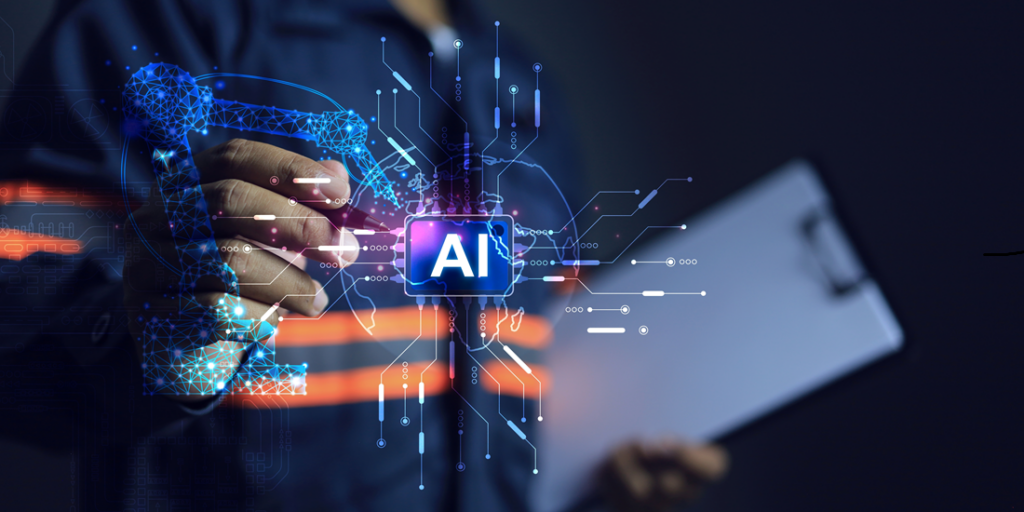As businesses and organizations navigate increasingly complex regulatory environments and global markets, legal operations have become crucial to ensuring compliance, managing risk, and improving efficiency. Contract management is at the heart of this evolution, a core function that traditionally involves meticulous review, tracking, and compliance tasks. The introduction of AI into legal operations has transformed this process, making it faster, more accurate, and more scalable. By automating routine aspects of contract management and providing predictive insights, AI is not only saving legal teams time but also offering strategic benefits that go beyond traditional contract analysis.
AI-Driven Contract Analysis: Speeding Up and Enhancing Accuracy
AI has brought transformative efficiency to contract analysis, traditionally a time-intensive and detail-oriented task. Legal teams have long been burdened with manually sifting through lengthy contracts, identifying clauses, and ensuring compliance with regulatory standards. This laborious process is especially challenging when dealing with high volumes of contracts, such as in large corporations, global organizations, and even law firms. By using AI-powered natural language processing (NLP), legal teams can now parse through thousands of documents in a fraction of the time it would take a human to do the same.
A prime example is the use of AI by companies like JPMorgan Chase, which has implemented a program called COIN (Contract Intelligence) to handle contract-related tasks. According to JPMorgan, COIN can review thousands of complex contracts and pinpoint key terms and clauses in just seconds, an endeavor that would otherwise take humans approximately 360,000 hours annually. This tool not only speeds up the review process but also improves accuracy, as it reduces the likelihood of human error. This is essential when a misinterpreted clause could result in financial loss or legal liability. The ability to rapidly process contracts without compromising quality allows companies to respond to contract-related queries and updates in near real-time.
Another benefit of AI in contract analysis is consistency. Human reviewers can have slight variations in interpreting language, especially when multiple team members are involved. AI, on the other hand, offers a standardized approach, ensuring that similar clauses are consistently identified and interpreted. Legal AI platforms like LawGeex use machine learning to review contracts against an organization’s predefined policies and flag any deviations, ensuring that nothing is overlooked in the review process. This not only makes contract management more efficient but also helps maintain compliance with internal guidelines and external regulations.
Streamlining Contract Workflows and Collaboration with AI
Contracts often require input from multiple departments, including finance, procurement, and legal, each bringing unique insights and needs. Coordinating these different perspectives can slow down the contract approval process, particularly when there is a heavy reliance on manual processes. AI-powered contract lifecycle management (CLM) platforms are revolutionizing this aspect by automating repetitive tasks, reducing bottlenecks, and fostering collaboration.
For instance, Ironclad, a popular CLM platform, leverages AI to facilitate seamless collaboration across departments. The platform provides centralized access to contract workflows, where team members can make edits, add comments, and review changes in real-time. By automating administrative tasks, such as tracking contract versions, alerting stakeholders about required approvals, and monitoring deadlines, Ironclad allows legal professionals to focus on more strategic issues. This collaborative approach means contracts are processed faster, with fewer errors and delays.
AI-driven platforms can also monitor the status of contracts in progress, making it easier for teams to identify contracts that are stalled or awaiting further input. This visibility ensures smoother contract negotiations and renewals. The centralized database allows all departments to access the most recent contract versions and track any changes made, preventing miscommunications or outdated document use. Enhanced workflow automation and collaboration thus enable legal teams to handle a larger volume of contracts without increasing headcount, a significant advantage for growing businesses.
Predictive Insights for Proactive Legal Decision-Making
Beyond contract analysis and workflow optimization, AI also enables predictive capabilities that empower legal teams to make proactive decisions. Machine learning algorithms can analyze historical contract data to identify patterns and anticipate potential risks, enabling organizations to preemptively address them. This risk assessment ability is particularly valuable for companies dealing with high-stakes contracts or frequent regulatory updates, such as in financial services, healthcare, and tech industries.
Additionally, AI can provide insights into contract performance, such as identifying underperforming contracts that may not be delivering expected value or flagging renewal opportunities. These insights help organizations optimize their contract portfolios by retaining high-value contracts and re-negotiating or discontinuing those that are less favorable. Companies like Seal Software offer contract analytics tools that not only highlight such risks but also provide suggestions on how to address them based on similar cases in the past, making the contract management process far more strategic.
The adoption of AI in contract management is reshaping the legal landscape, moving it from a reactive function to a proactive, strategic role within organizations. By enabling faster and more accurate contract analysis, streamlining workflows, and providing predictive insights, AI empowers legal teams to handle complex tasks with greater efficiency and foresight. These advancements are particularly valuable for companies managing high volumes of contracts or facing rigorous compliance requirements.
As AI technology continues to evolve, its potential applications within contract management are expanding. Future AI solutions may incorporate even more advanced features, such as real-time regulatory updates, allowing legal teams to ensure ongoing compliance seamlessly. In a world where legal operations are increasingly critical to business success, AI offers a useful tool for legal teams looking to enhance productivity, mitigate risks, and make data-driven decisions. The integration of AI in contract lifecycle management marks a significant step forward for legal operations.
About the Author

Daniela De La Vega is an accomplished legal and compliance professional with over 18 years of experience in the oil and gas industry, specializing in contract negotiation and tender design across North and Latin America. Her expertise spans managing complex legal operations, advising on high-stakes compliance, and overseeing contract departments for major industry players. Bilingual in English and Spanish, Daniela is a skilled leader who has successfully navigated cross-border legal frameworks, bringing transformative strategies to companies in Venezuela, Colombia, the U.S., and beyond.
Sign up for the free insideAI News newsletter.
Join us on Twitter: https://twitter.com/InsideBigData1
Join us on LinkedIn: https://www.linkedin.com/company/insideainews/
Join us on Facebook: https://www.facebook.com/insideAINEWSNOW
Check us out on YouTube!




